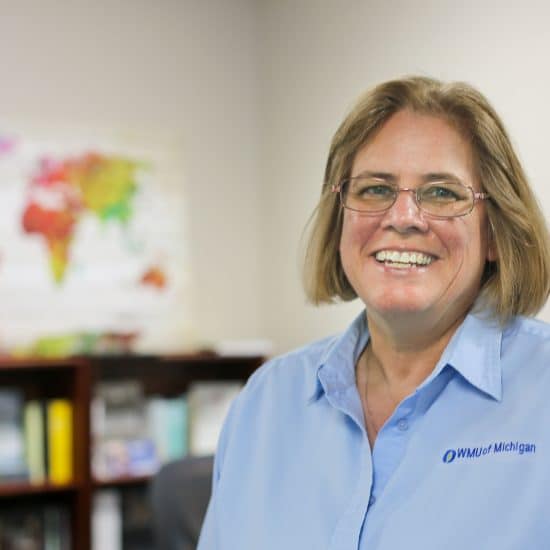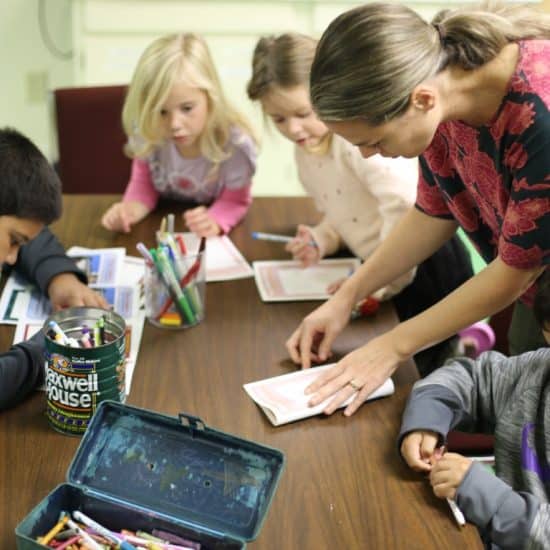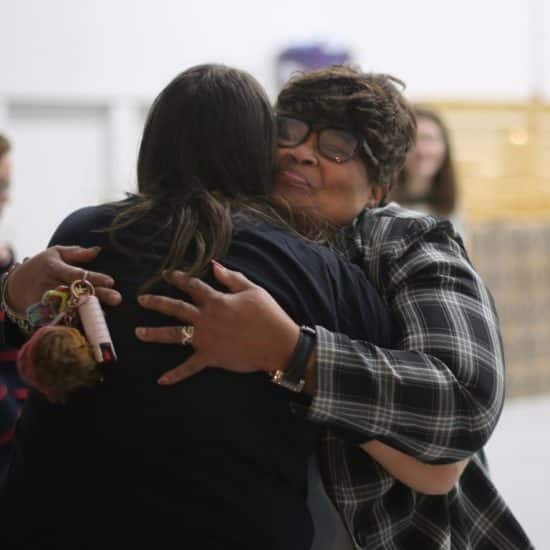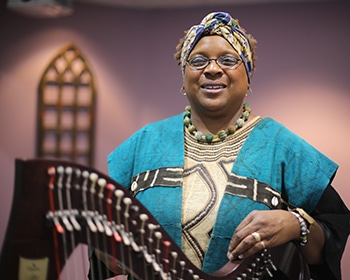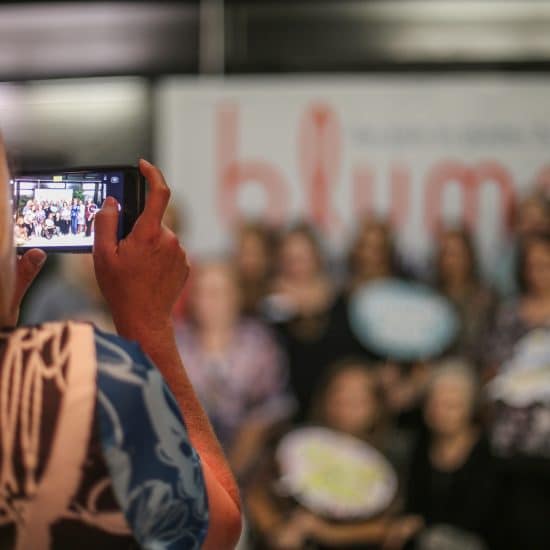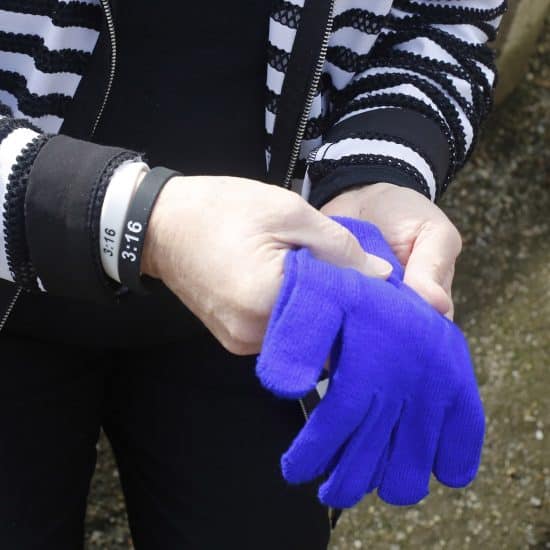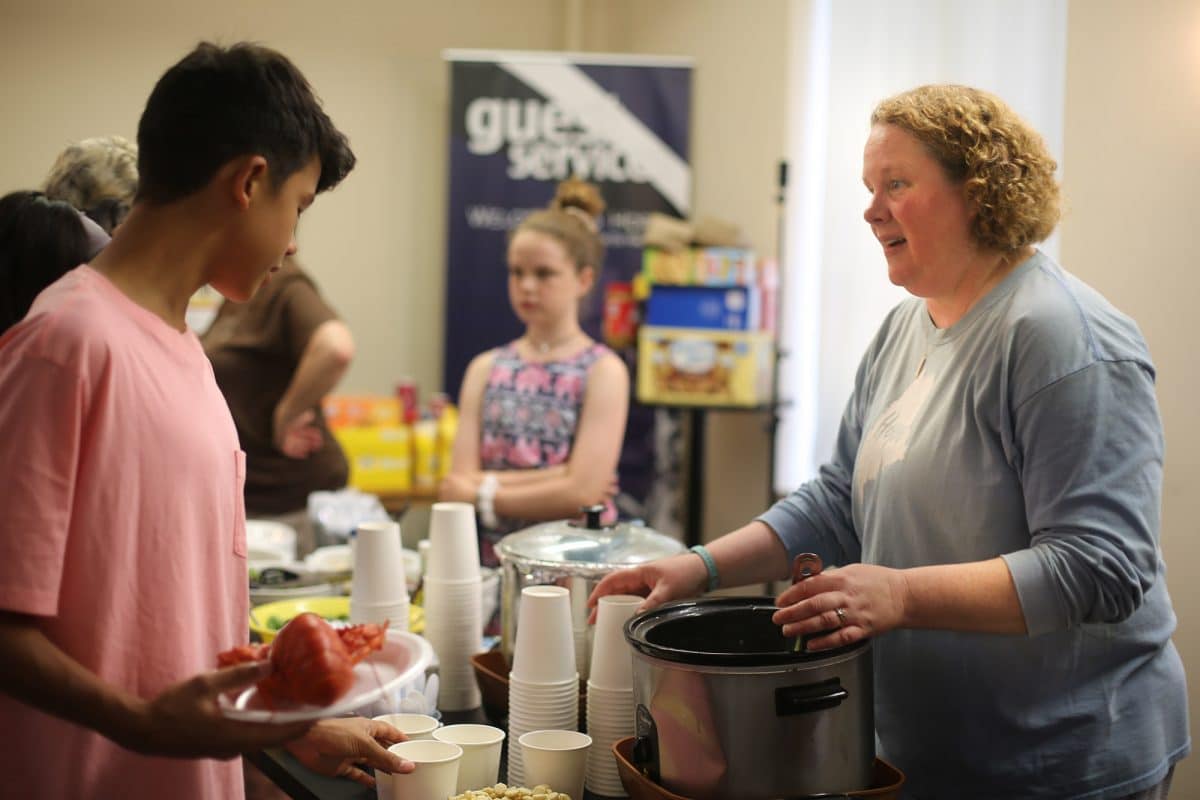
BRUNSWICK, MAINE — Sometimes accepting God’s call to missions means being willing to pack up your family and head back home. At least that was the case for Katie Upton Wood.
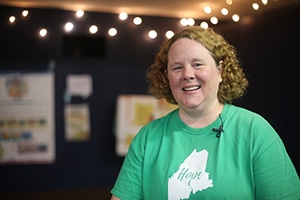
Katie Wood, who grew up in New England, sensed God’s call to return to the region to share the hope of Christ with area residents. “We’re just people that have Jesus and we want to share that,” she explained. (WMU photo by Pam Henderson)
Katie and her husband, Brandton, along with their three daughters, Corley Hannah, Rose and Callann, relocated from Georgia to Maine a few years ago to help reach New England with the hope of Christ. The visible fruit of their missions calling is Hope Church, a growing congregation launched in 2017 in Brunswick, Maine.
Amid the ups and downs of planting a new church in coastal Maine, anyone “would have to be crazy to do what we do unless you are called to do it,” Brandton candidly shared. He quickly added, however, that long before he and Katie met, “God was laying a foundation for her” that would “prepare her heart for what we’re doing today.”
Katie credits much of that foundation to her childhood years actively involved in Southern Baptist missions organizations. “If it hadn’t been for GAs and Acteens and Mission Friends,” she said, “I don’t think that I would have the mindset that I do and the heart for other people that God has given me.”
Katie grew up in New England as part of a committed Christian family. Her dad was a pilot for American Airlines, based out of Logan International Airport in Boston. For several years, they lived just over the state line in New Hampshire and attended Screven Memorial Baptist Church (now Seacoast Community Church), the first Southern Baptist congregation planted in New England in the early 1960s.
The church, which Katie described as a blend of transplanted Southerners and local residents, had a missions house that hosted volunteer mission teams as well as US-2 and Journeyman missionaries. As she interacted with the visiting missionaries, “I grew up with that mindset that missions was not just off in China and Africa; it was right at our back door,” Katie explained. “I just loved that.”
As a Mission Friend and GA, “I remember reading the stories and praying for these missionaries and seeing their pictures,” she said. “It wasn’t just somebody that you hear of in a different country. These were people who had names and they had a face and a story and they really literally moved their whole entire family to go tell people about Jesus.
“It was super exciting to think these are real people,” she added. “Because we lived in New England, a lot of times we had those people come to visit us because New England is part of the least churched areas in the entire United States.”
“The Importance of Missions”
Despite that reality, “I was fortunate enough to get to grow up in a really solid, Bible-believing Southern Baptist church that instilled in me the importance of missions because we can’t just keep this to ourselves,” Katie emphasized. “If you have something really great, don’t you want to share it with other people and tell people about it?”
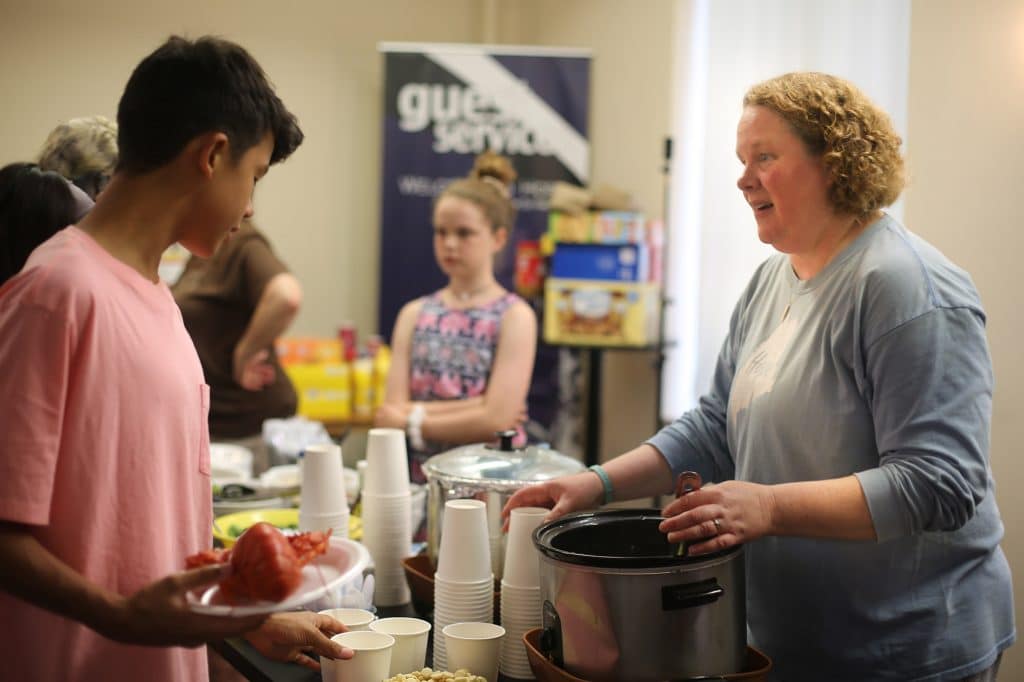
Serving lobster to a visiting missions team, Katie Wood noted, “I grew up in New England so I have a special, special heart for New England itself.” Photo by Pam Henderson/WMU
Those early lessons stayed with Katie throughout high school and college. Although she studied sports medicine in college and planned to become an orthopedic surgeon, she acknowledged, “That’s what I wanted in my head, but in my heart, I knew I needed to be doing something else.”
She ended up attending Southeastern Baptist Theological Seminary to prepare for missions ministry. That’s where she met her future husband, a fellow seminary student who grew up on a peanut farm in rural Georgia. “I grew up in the suburbs in New England so we really didn’t have very much in common,” she pointed out, “but I just saw his heart for Jesus and how much he loved people and how that passion for the gospel just burned in him.”
After dating and getting married, they moved to Florida where Brandton served as youth pastor for a large congregation near Orlando. While they had “just the perfect, quintessential life” with a great ministry position, a house and their first baby, Katie said, “I just had this stirring that this is not where we were supposed to be. … I knew we needed to be back in New England.
“God just really spoke to my heart and so I remember Brandton coming home from work one day and I said, ‘I really have to talk to you’ and he said, ‘I have to talk to you too. I really feel like we need to be church planting,’” Katie recounted. “I thought, ‘Oh, my stars, here it goes!’”
Compelled to Take Action
They contacted the Baptist Convention of New England and were invited to visit the region and explore ministry opportunities. After they flew in and were driving from New Hampshire to Vermont, Katie recalled driving past beautiful calendar-type scenes of little white churches in pristine, snow-covered settings. Upon closer inspection, they realized many of the church buildings were now bars or dollar stores or tourist stops. “My heart just sinks,” she said, immediately sensing that “I have to do something about this.”
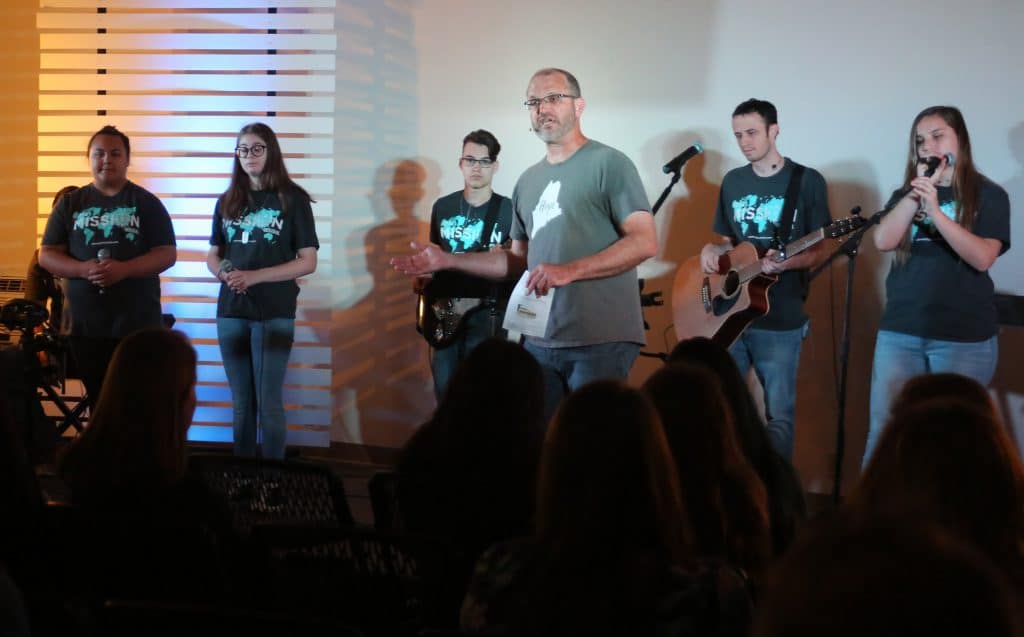
Brandton Wood, lead pastor of Hope Church in Brunswick, Maine, speaks to the congregation during a Sunday morning worship service. He and his wife, Katie, launched the new congregation in 2017. Photo by Pam Henderson/WMU
Noting that Brandton also “knew in his heart” they needed to serve in New England, Katie said, “We took some time and we prayed about it and we got home to Orlando and we said this is where we need to go so we sold our house and packed up our little person, Corley Hannah, and we moved to New Hampshire to plant our first church in the year 2000.”
Amid challenges along the way, they were able to plant a church in New Hampshire and eventually handed it off to local church leaders. They returned south to the Atlanta area to plant another congregation, “all the while decorating our home in all things lobster and buoys and boats and just longing for that New England feel, knowing in the back of our heads that’s where we’re going to go back to some day,” Katie affirmed.
When the opportunity came to plant a church in Maine, they had grown to a family of five. All three daughters said yes to the idea of moving from Georgia to New England. Making the transition from “shrimp and grits to lobster chowder,” Katie said, “We came up here and it has been a doozy of a ride.”
Noting that New Englanders aren’t known for inviting newcomers into their homes, the Woods decided to throw themselves a welcome party that they dubbed “Pig on the Pond.” Serving pulled pork, boiled peanuts and other Southern delicacies, Katie recalled, “We invited people and they came. I think they were curious to see who we were, what a boiled peanut was, but we found that they found us to be normal people.
“That’s what we wanted,” she said. “We didn’t want to be the Southern people that are trying to change people. We wanted to be their neighbors that have something really great to share.”
Launching Hope Church
After starting a Bible study in their home, their core group gradually grew large enough to launch Hope Church just over two years ago. The church now averages about 125 people in attendance, with active children’s and youth ministries and several home-based small groups. While Brandton serves as lead pastor and Katie coordinates the children’s ministries, neither of them receives a salary from the church. Brandton also is a church plant catalyst for New Hampshire with the North American Mission Board. Katie works part-time as a bookkeeper at their kids’ school and also does some counseling.
“We’ve got a lot of irons in the fire,” she said, affirming that Woman’s Missionary Union groups from across the nation “have been our biggest supporters and cheerleaders this entire journey” with timely prayers and cards and other tangible expressions of support.
Gradually adapting to their new ministry setting, Brandton said, “We changed the strategy from constantly inviting people to church to just being real people first and becoming friends with people and it’s opened a lot of doors that we probably were shutting originally.”
As those doors have opened, he said, “God is bringing adults to faith in Him.” Citing recent baptisms of people ranging in age from their 20s and 30s to their 70s and 80s, he added, “The church is growing. It’s pretty exciting to see what He’s doing.”
Realizing that “it could be easy as our church now is gaining some size to become focused on ourselves and to say we have a comfortable size group together,” he said, “We don’t want to become comfortable. We want to always be thinking about the next person and how we reach them.”
For Katie, helping meet those pressing spiritual needs meant coming back home to New England. “It’s what we were meant to do,” she concluded. “It’s why we’re here.”

